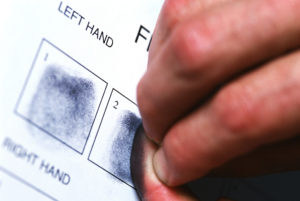
- What does “beyond a reasonable doubt” mean? If you have ever watched a law enforcement drama or a reality police show on television, you know that the prosecution must prove a defendant’s guilt “beyond a reasonable doubt.” What does that mean though? The beyond a reasonable doubt standard is a deeply engrained part of the American criminal justice system. Although a universally accepted definition remains somewhat elusive, it is typically described as proof so strong that it overcomes the presumption of innocence and proof so strong that no other logical conclusion can be derived other than that the defendant committed the crime. Think of it as 98-99 percent certain that the defendant is guilty.
- Will my attorney know what evidence the State has against me? Yet another right an accused has is the right to confront and cross examine witnesses against him. That right also extends to the physical evidence in a criminal prosecution. During the “discovery” phase of your case, the prosecuting attorney will produce things such as copies of reports and examinations conducted on physical evidence, copies of witness statements and a list of witnesses the State intends to call at your trial. Your attorney will then have the chance to arrange for independent tests, depositions, and expert witnesses for the defense.
- Will I get to introduce evidence and witnesses also? Because the State has the burden in a criminal trial, you are not required to put on a defense at all. In some cases, if the State’s case is particularly weak, your criminal defense attorney will advise you not to put on a defense because the State has clearly failed to meet its burden. Furthermore, you also have an absolute right against self-incrimination which means you cannot be forced to testify; however, if you choose to put on a defense you may do so and you may choose to testify on your behalf as part of that defense.
- Can my attorney challenge any of the State’s evidence? If any of the evidence was obtained illegally, or without following the proper procedures, your attorney may challenge its admissibility. For example, if evidence was obtained as a result of an illegal search and seizure, that evidence would not be admissible at trial. In addition, evidence may be challenged if it is not relevant or its prejudicial affect might outweigh its probative value. There are very specific rules about what evidence may be admitted in a criminal trial and what evidence may not be admitted.
- What is a deposition? A deposition is a common pre-trial tool that allows you to find out what a witness plans to testify to prior to the actual trial. A deposition typically occurs at your attorney’s office or another location outside of the courtroom. At the deposition, the witness is placed under oath and his/her answers are recorded by a court reporter. Your attorney can ask questions, just like at trial, and the witness answers them. This gives you an idea of what the witness will testify to at the actual trial. If the witness changes his/her testimony at trial, the deposition answers can be used to impeach him/her.
Contact a Murfreesboro Criminal Defense Attorney
If you have been charged with a criminal offense in the State of Tennessee, it is in your best interest to consult with an experienced Murfreesboro criminal defense attorney at Bennett, Michael & Hornsby as soon as possible to ensure that your rights are protected throughout the prosecution of your case. Contact the team today by calling 615-898-1560 to schedule your appointment.
- The Art of Successful Co-Parenting During Divorce - April 19, 2024
- Elder Financial Exploitation: How to Protect Seniors - April 12, 2024
- How to Obtain Guardianship of a Minor in Tennessee - April 2, 2024




